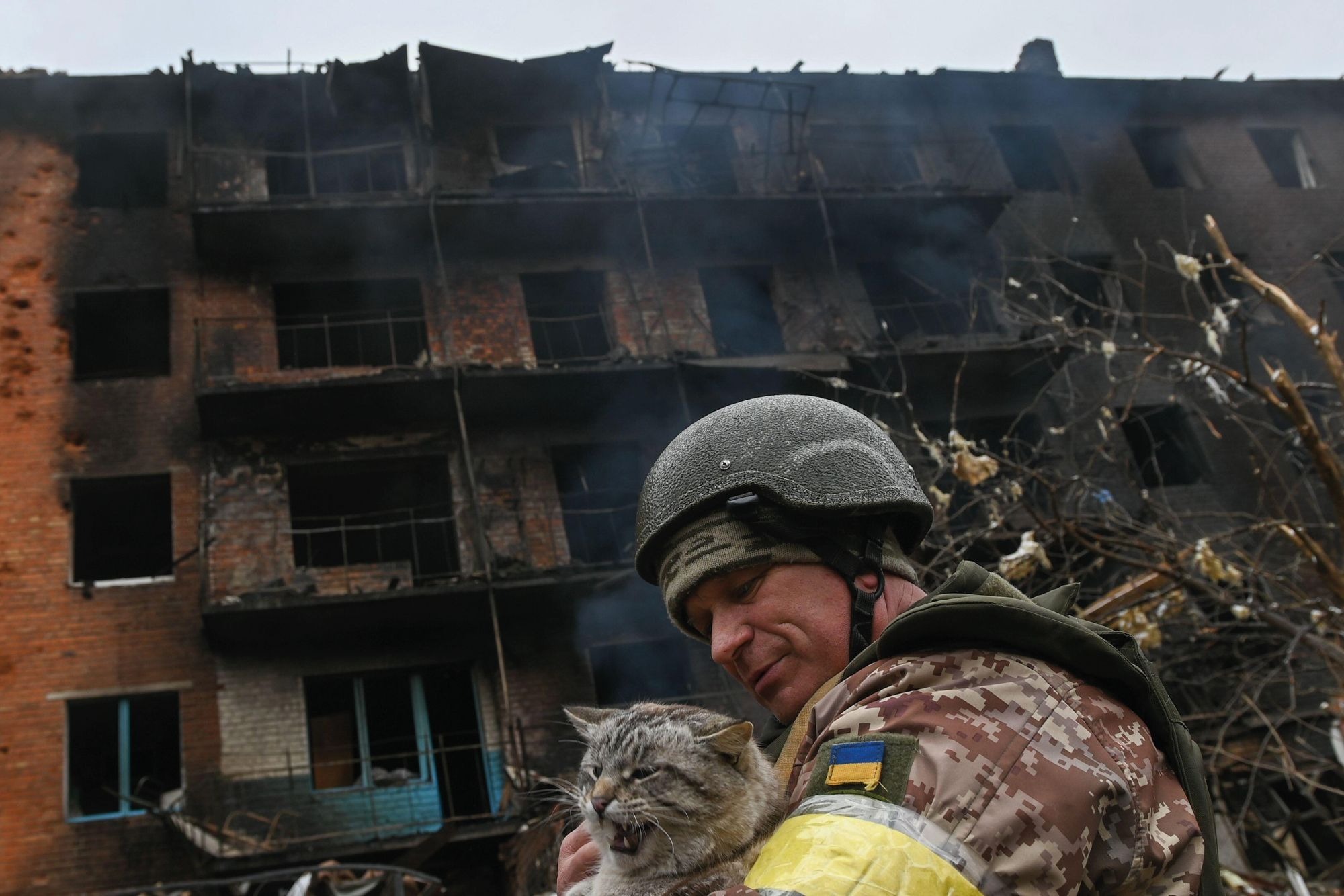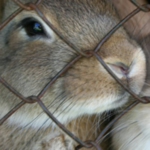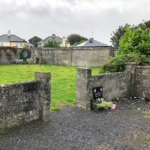Two memoirs, from Basra and Ukraine, chronicle the lives of ordinary men pulled into war

Ordinary People Don’t Carry Machine Guns: Thoughts on War (Seven Stories) by Artem Chapeye
The Accidental Soldier: Dispatches from Quite Near the Front Line (Hodder & Stoughton) by Owain Mulligan
As Artem Chapeye well understands, the title of his book is wholly inaccurate. Ordinary people absolutely do carry machine guns: indeed, ordinary people carrying machine guns is pretty much the story of modern warfare. It is safe to assume that Owain Mulligan would concur with this view, just as Chapeye would recognise the concept of the accidental soldier: he is one himself.
These are two very different war memoirs, which nevertheless have a great deal in common. Chapeye is a prominent Ukrainian author and journalist who joined the Ukrainian army in the days immediately following Russia’s full-scale invasion of his country in February 2022. Mulligan is a British schoolteacher and Territorial Army reservist who does a stint as a troop commander in Basra, Iraq in 2006. Chapeye is serious, ruminative and serving in an existential war for his country’s survival. Mulligan is self-deprecating, funny – a genuinely gifted comic writer – and participating in a misbegotten occupation.
But neither man dons his country’s uniform out of any great martial ardour. For Chapeye, who had previously thought himself a left-wing pacifist, his new vocation descends in a moment of clarity. On 22 February 2022, as Russian forces pour over Ukraine’s borders, he flees Kyiv with his wife and children. Within 48 hours, he decides that he has greater responsibilities elsewhere. He initially feels uncomfortable at the thought that Ukraine will be defended by the people he has spent his career writing about – the poor, the rural, the less educated – while folk like himself, people with options, wait the war out elsewhere. Then the instinct becomes more primal: a question of what a man is, and what kind of man he is. “If I run away now,” he tells his nine-year-old son, “later I won’t be able to look you in the eye, or myself in the mirror when I shave.”
I have not seen Chapeye’s war up close, but I was in Basra about a year before Mulligan, as a journalist embedded with a Welsh Guards company stationed at a disused regional airport. By the time Mulligan deploys, things had gotten a great deal worse. The closest I came to combat in Basra was being woken by gunfire exchanged between two local tribes, the Geramsha and the Halaf, Basra’s answer to the Hatfields and the McCoys. The company commander explained to me that “The Scots Guards went up there once and asked them to put a sock in it, which worked for a bit. Now, we just take the view that as long as nothing comes over the fence, it isn’t really our problem.”
Plenty does come over the fence during Mulligan’s tour. He has a narrow escape from a mortar barrage, while outside the perimeters there are mines, militants and – at least as hazardous – the kind of mishap that can occur anywhere, but which can have much more serious consequences in a warzone. One of the best-told sequences in The Accidental Soldier is one of the least amusing, as Mulligan leads his troop’s vehicles on an ill-advised shortcut into a minefield, and then has to reverse them, slowly and sweatily. “No one wants to go so much as an inch onto the verge, so it’s like playing a hideous game of Land Rover Tetris.”
Crucially, there is little cruelty to Mulligan’s humour, even when he vents exasperation at the ineptitude and corruption of Iraq’s own police and military (of an inspection of one police outpost, he writes, “It’s the usual story. Half the workforce are at their cousin’s funeral in Baghdad, the keys to the evidence locker are with Mahmoud, who’s visiting the outermost ice-water rings of Saturn, and the station itself would make the Marie Celeste look lively”). His attitude to Iraq’s bewildered and brutalised people is altogether sympathetic, his jokes much more often on himself. The Accidental Soldier is a worthy heir to Spike Milligan’s memoirs of the Second World War, or George MacDonald Fraser’s “McAuslan” series – the Flashman author’s lightly fictionalised account of his post-Second World War service with the Gordon Highlanders in the Middle East.
Ordinary People Don’t Carry Machine Guns has perhaps more in common with Fraser’s Quartered Safe Out Here – his account of his time in Burma during the Second World War – or George Orwell’s Homage to Catalonia, even if Orwell was fighting to save someone else’s country rather than his own. Chapeye – who as of this writing is still in the army – is an acute and astute observer of his fellow citizens in uniform, and not the first to discover that, counter-intuitively, soldiers at war can be the most unabashedly tender and compassionate of people. “Initially,” he writes, “with an impression of war based on anti-war books, I was scared that people would quickly turn feral … I haven’t seen this at all. In my opinion, soldiers are becoming, I don’t know, somehow gentler or something.”
Though both these authors have displayed considerable physical courage in going to wars they could have avoided, both are at pains to communicate that they do not see themselves, or wish to be seen by others, as remotely heroic. Like most soldiers in most conflicts, they did – or are doing – their best in circumstances all at once wretched and elevated. Chapeye speaks for every ordinary person who has carried a machine gun – or a rifle, a sword, or a spear. “You’re a small part of something greater … you feel that greatness, as well as the desire at every single moment for all this ‘greatness’ to come to an end right now.”
This article is from New Humanist’s Autumn 2025 issue. Subscribe now.


